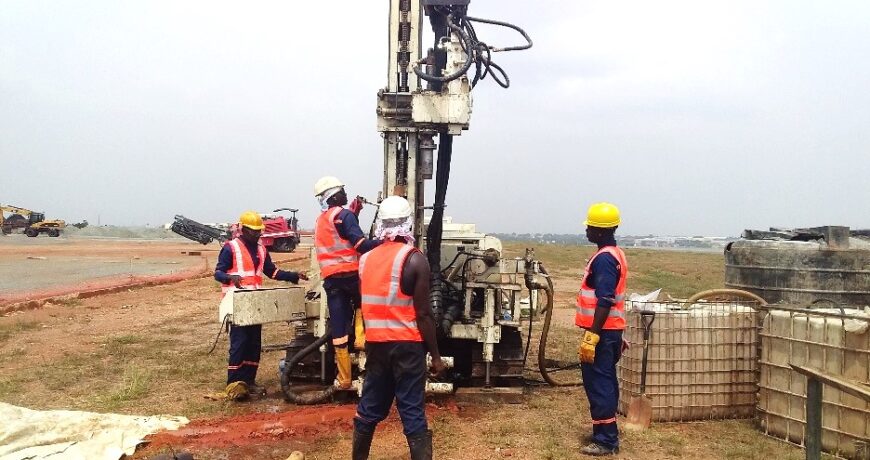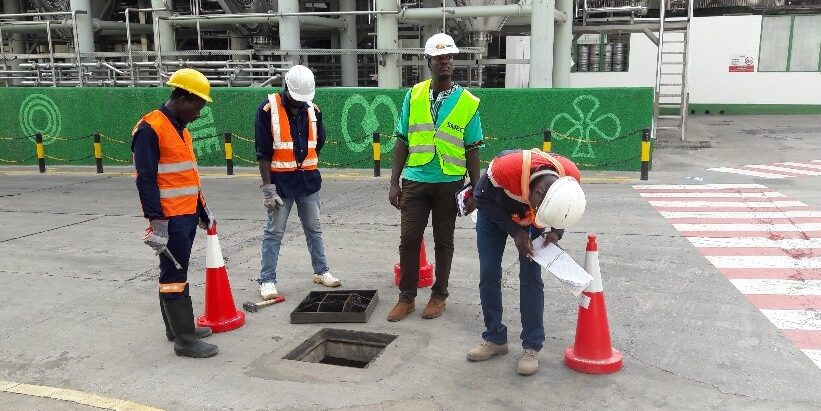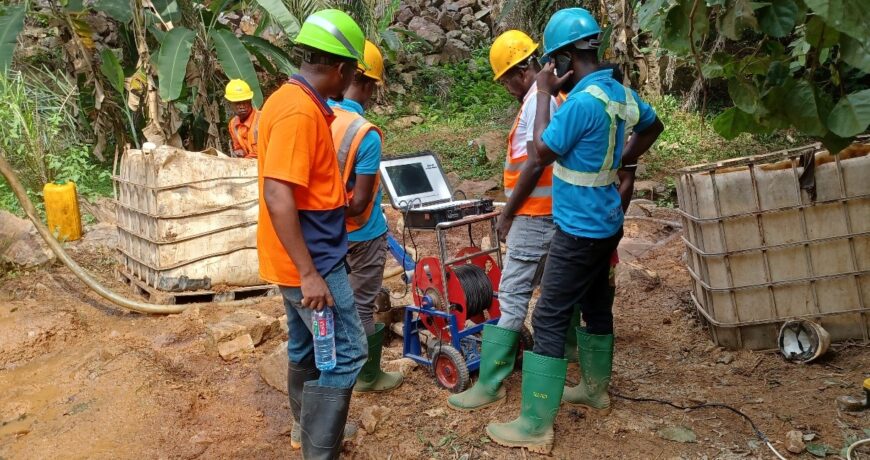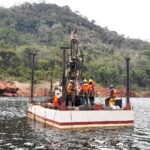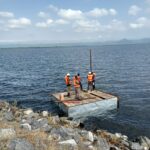Rimog Ghana Limited provides the following Geotechnical Services:
SITE INVESTIGATIONS
Light percussing boring and sampling of soil, Rotary drilling and sampling of soil and rock, Auger boring and sampling of soil, Undisturbed soil (U100) sampling, disturbed/grab soil sampling, Sediment/geo-environmental media sampling, Mechanical cone penetration test (CPTm), Piezocone cone penetration test (CPTu), Deep mechanical pitting and sampling, Shallow manual pitting and sampling, Lightweight (DPL) dynamic cone test, Mediumweight (DPM) dynamic cone test, Heavyweight (DPH) dynamic cone test, Monitoring well/development/purging, In-situ falling head permeability, In-situ double packer permeability, Standard penetration test (SPT), Pressure Meter test (PMT), static plate load test (20 tons), Dynamic plate load (deflectometer) test, Field California bearing ratio (CBR), Field vane shear test, and Field single-pile integrity test.
Services brochure

We first create the highest level of trust and integrity with our clients.
Marine Site Investigations
Generally our Marine Site Investigations includes:
- Nearshore Floating Jack-Up Barge (15 tons)
- Seabed Sampling of Sediment, Soil and Rock
- Cone Penetration Test (CPTu) Piezocone
What is included
Project Scheduling And Management
Our Project scheduling and management are essential components in the delivery of geotechnical services, ensuring that site investigations, laboratory testing, and reporting are completed efficiently, accurately, and within project deadlines.
Project Scheduling
Scheduling involves planning the sequence and duration of activities such as:
-
Site visits and soil sampling
-
Laboratory testing (e.g., CBR, Proctor, Triaxial tests)
-
Data analysis and reporting
Tools like Gantt charts, CPM (Critical Path Method), or project management software are used to monitor timelines and allocate resources effectively.
Project Management
Management encompasses:
-
Scope definition: Understanding client requirements and site conditions.
-
Resource allocation: Assigning qualified personnel and equipment.
-
Quality control: Ensuring testing follows standards (ASTM, IS, BS).
-
Communication: Coordinating between field teams, labs, and clients.
-
Risk management: Addressing delays due to weather, site inaccessibility, or sample issues.
Through our effective scheduling and management, we are able to deliver geotechnical data that is timely, accurate, cost-effective that is reliable for design and construction decisions.
Perform Value Engineering
We focus on enhancing the efficiency, accuracy, and reliability of all phases of geotechnical investigations, from fieldwork to laboratory testing and reporting.
Purpose:
-
To optimize processes, resources, and technologies used in geotechnical projects.
-
To ensure high quality and timely delivery of data critical for design and construction.
Key Focus Areas:
-
Process Optimization
-
Streamlining field operations (e.g., drilling, sampling, in-situ tests) for faster turnaround.
-
Standardizing lab workflows to reduce errors and delays.
-
-
Technology Integration
-
Use of digital data logging, GPS-enabled field mapping, and automated lab equipment.
-
Implementation of project management and quality tracking systems.
-
-
Quality and Compliance
-
Regular equipment calibration and technician training.
-
Adherence to codes and standards (e.g., ASTM, IS, BS).
-
-
Performance Monitoring
-
Tracking KPIs like test completion time, client satisfaction, and data accuracy.
-
Continuous improvement through feedback and audits.
-
Outcome:
-
Improved efficiency, cost-effectiveness, and client satisfaction
-
Enhanced data reliability for safer and more effective engineering decisions
-
Greater ability to scale and handle complex or time-sensitive projects
Inspections And Occupancy Permit
We perform systematic review and monitoring of field and laboratory activities to ensure the quality, accuracy, and compliance of soil investigation and testing processes. This is to verify that geotechnical investigations are conducted according to industry standards (e.g., ASTM, IS codes), ensure reliable data for safe design and construction decisions and maintain consistency and quality control across all phases of the project.

